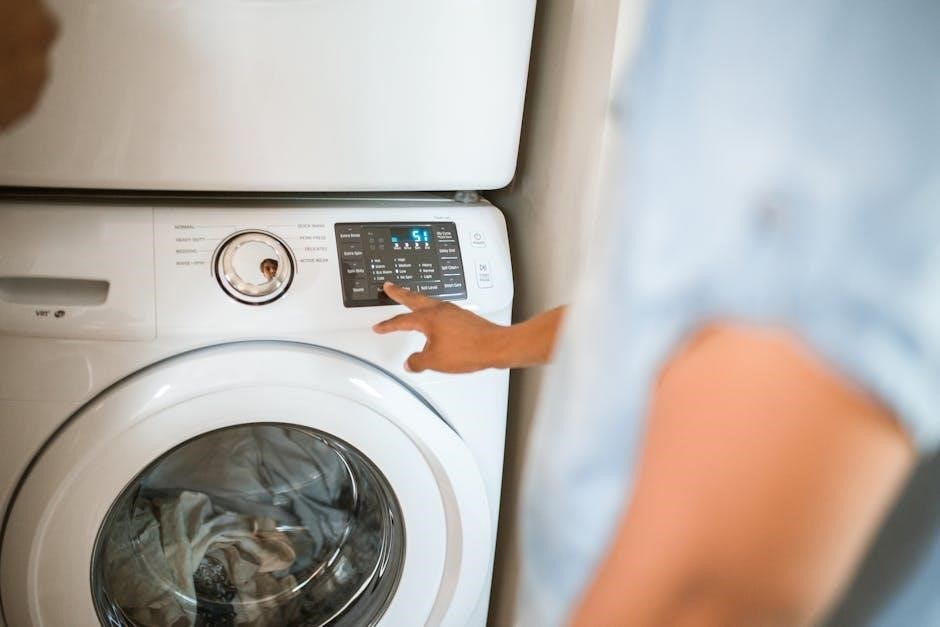
Overview of AG990-IL
The AG990-IL form is an annual report for Illinois charitable organizations, detailing revenue, expenditures, and assets. It ensures transparency and compliance with state regulations, providing essential financial oversight.
1.1 Purpose of the Form
The AG990-IL form is mandated by the Illinois Attorney General’s office to ensure charitable organizations disclose their financial activities annually. Its primary purpose is to promote transparency by requiring detailed reports on revenue, expenditures, and assets. This ensures compliance with state laws and provides stakeholders with essential insights into the organization’s financial health and operational integrity. The form is a critical tool for maintaining public trust and accountability within the nonprofit sector.
1.2 Key Changes in Reporting Requirements
Recent updates to the AG990-IL form include increased audit thresholds for charitable organizations. The audit requirement now applies to organizations with contributions exceeding $300,000, up from $150,000, if fundraising is solely conducted by volunteers. Additionally, organizations using professional fundraisers must file audited financial statements if contributions exceed $25,000. These changes aim to streamline reporting for smaller charities while enhancing oversight for larger organizations. The updates also clarify requirements for attachments, such as audited financial statements and copies of IRS returns, to ensure compliance and transparency.

Filing Requirements
The AG990-IL must be filed by charitable organizations in Illinois, ensuring compliance with state regulations. It includes submitting required attachments and paying applicable fees.
2.1 Who Needs to File AG990-IL
Charitable organizations and trusts operating in Illinois must file AG990-IL annually. This includes entities soliciting donations, with gross contributions or assets exceeding $25,000. Organizations using professional fundraisers who collect over $25,000 must also file. The form ensures compliance with the Solicitation for Charity Act and Illinois charity laws. Late registration incurs a $200 fee, emphasizing the importance of timely filing. This requirement applies to all qualifying entities, ensuring transparency and accountability in charitable operations statewide.
2.2 Audit Thresholds
The audit threshold for Illinois charitable organizations has been updated. Charities with contributions exceeding $150,000 or $300,000, depending on fundraising methods, must provide audited financial statements. Specifically, organizations using only volunteer fundraisers must file audits if contributions surpass $300,000 annually. For reports due after January 1, 2010, the $150,000 threshold applies if paid fundraisers are involved. Audits ensure financial transparency and compliance with state regulations, particularly for larger organizations or those using professional fundraising services.
Fees and Supporting Documents
The AG990-IL requires a $15 annual filing fee and may include late fees of $100 for delayed reports. Supporting documents vary by organization, ensuring compliance with state regulations.
3.1 Annual Filing Fee
The AG990-IL form requires an annual filing fee of $15, which must accompany the submission. This fee is mandated by Illinois state law to cover administrative costs. Late filings incur an additional $100 penalty. The fee is non-refundable and must be paid by check or money order made payable to the Illinois Attorney General. Organizations are encouraged to submit the fee along with the completed form to avoid delays. Failure to include the fee may result in processing delays or rejection of the filing.
3.2 Late Fees and Penalties
A late filing fee of $100 is imposed for each late report, in addition to the annual $15 filing fee. Organizations that register late must pay a $200 late registration fee. These penalties are non-refundable and must be paid promptly to avoid further complications. It is crucial for organizations to submit their reports and fees on time to maintain compliance and avoid additional financial burdens. Late payments may lead to delays in processing or rejection of the filing.
3.4 Required Attachments
The AG990-IL form requires specific attachments, including audited financial statements if contributions exceed $150,000 or $300,000. A copy of the IRS return and disclosures about professional fundraisers must also be included. Additional documentation may be needed based on the organization’s activities. Ensure all attachments are complete and accurate to avoid processing delays. Failure to include required documents may result in rejection or penalties. Refer to the guidelines for a detailed list of necessary supporting materials.

Annual Financial Report Deadlines
Annual financial reports for AG990-IL must be submitted within six months following the close of the fiscal year. Missing the deadline may result in penalties. Ensure timely submission to avoid late fees and maintain compliance with Illinois regulations. Always verify the specific due date in the official guidelines provided by the Illinois Attorney General’s office.
4.1 Filing Timelines
The AG990-IL annual financial report must be filed within six months after the close of the organization’s fiscal year. Late submissions may result in penalties. Ensure compliance by adhering to this deadline. The Illinois Attorney General’s office requires timely reporting to maintain transparency and accountability. Failure to meet the deadline can lead to additional fees and potential legal actions. Always verify the exact due date in the official instructions to avoid delays or penalties. Proper planning and preparation are essential to meet the filing timelines effectively.

Extension Requests
Organizations must submit a written request with details about their need for an extension, including the reason and the required documentation. Approvals are typically granted for up to 90 days.
5.1 How to Request an Extension
To request an extension for filing Form AG990-IL, organizations must submit a written request stating the reason for the delay and providing supporting documentation. The request should be signed and dated by an authorized individual. Extensions are typically granted for up to 90 days, allowing sufficient time to gather necessary data. Requests must be submitted before the original deadline to avoid late fees. Ensure the request is clear and includes all required details to prevent processing delays.

Professional Fundraisers
Professional fundraisers must report contributions exceeding $25,000. The form requires detailed disclosures about their activities and fees, ensuring transparency in fundraising practices and compliance with Illinois regulations.
6.1 Reporting Requirements
Professional fundraisers must disclose contributions exceeding $25,000 and provide audited financial statements if applicable. They must report all fundraising activities, fees, and expenses. The form requires detailed information about services rendered, ensuring transparency. Organizations using professional fundraisers must submit this information alongside their annual report. Failure to comply may result in penalties. Accurate and complete reporting is essential to maintain compliance with Illinois charitable solicitation laws and regulations. This ensures public trust and accountability in fundraising practices.

Best Practices for Filing
Ensure all required attachments are included, and the form is signed by authorized individuals. Submit accurate and complete reports to avoid delays or penalties.
7.1 Completeness and Accuracy
Ensuring completeness and accuracy is critical when filing Form AG990-IL. All required financial data, including revenue, expenses, and assets, must be thoroughly documented and verified. Inaccuracies or omissions can lead to penalties or delays. Review the form meticulously to confirm that all figures align with your organization’s records. This attention to detail ensures compliance with Illinois regulations and maintains the integrity of your charitable operations.
7.2 Signature Requirements
Form AG990-IL must be signed and dated by an authorized individual, such as an officer or trustee, to validate the report. For organizations filing Form 990 with the IRS, two signatures are required, though notarization is not necessary. Ensure all signatures are legible and accompanied by the signer’s title. This step confirms the accuracy of the information and compliance with Illinois charitable reporting regulations, making it a critical part of the filing process.
Filing Form AG990-IL ensures transparency and compliance for Illinois charitable organizations. Review deadlines, fees, and attachments carefully to avoid penalties and ensure a smooth submission process.
8.1 Final Checklist
- Review instructions: Ensure all requirements are met before submission.
- Complete the form: Fill in all sections accurately and fully.
- Signatures: Obtain authorized signatures as required.
- Fees and documents: Attach all necessary supporting documents and pay fees.
- Deadlines: Verify filing timelines to avoid late penalties.
- Accuracy: Double-check financial data and disclosures.
- Resources: Consult additional materials if uncertainties arise.
Additional Resources
Visit the Illinois Attorney General’s website for official AG990-IL form and detailed filing instructions. Additional guides and user manuals are also available for reference.
9.1 Where to Find More Information
For detailed guidance, visit the Illinois Attorney General’s website, which provides the official AG990-IL form and comprehensive instructions. Additional resources include user manuals, such as the Tersus AG990 GNSS Auto-Steering System manual, and PDF guides outlining specific filing requirements. These resources ensure compliance and accurate submission of the annual report, covering all necessary attachments and fees.